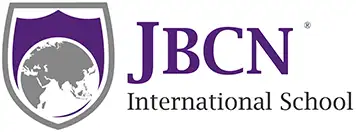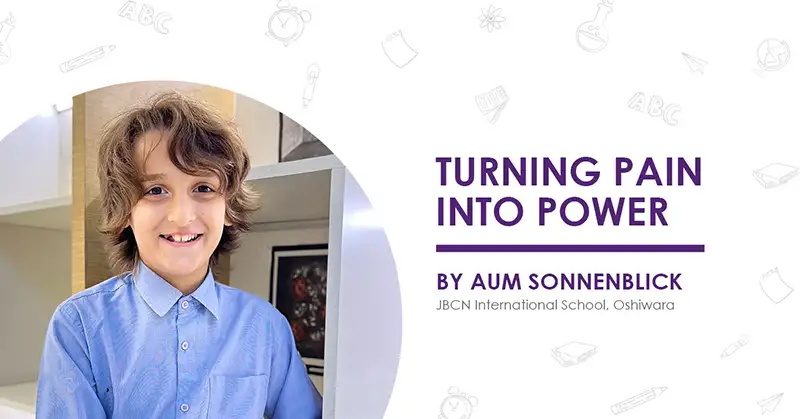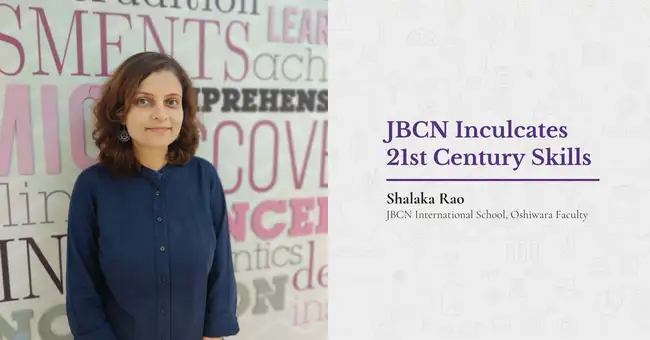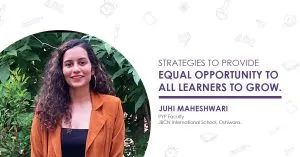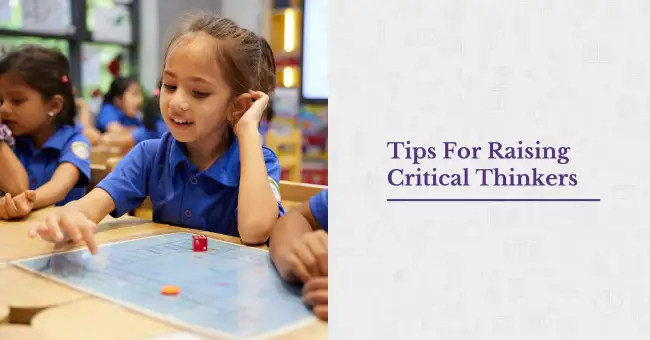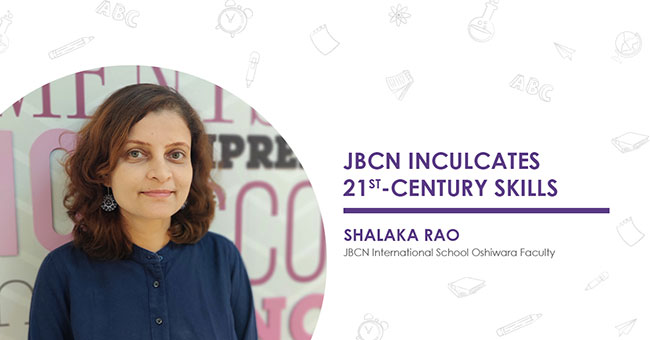
The International Baccalaureate Primary Years Program (IB PYP) pedagogy has inquiry at the core of learning. The programme encourages learners to inquire into transdisciplinary concepts, making them responsible, thoughtful and displaying meaningful actions that will in turn impact their personal, local and global spheres of life.
The teachers want their learners to be observant and analyse and question things around them; they want the learners to constantly evaluate their choices, and assess the impact of these choices thus imbibing essential life skills such as communication and collaboration. These skills, we know, thrive on human connection and are critical to personal and professional success.
This gives rise to some questions: Can these set skills be measured in Emotional Quotient (EQ)?
How important is EQ for all students to develop their life skills and knowledge as learners?
The World Economic Forum recently published the Future of Jobs Report, where EQ is one of the top five skills that everyone would need to thrive in the future. Unlike Intelligent Quotient (IQ), which is static, EQ can expand if taught explicitly through daily interactions. After all, we all know that emotions drive people, and people drive performance.
But, can we train our children with learning experiences that could add to a different way of being intelligent?
The answer to this is, "yes". We can carefully plan learning experiences that aid the development of being 'people smart'. The factors which play an essential role in this process are self-awareness, self-discipline and empathy.
We all know that humans usually take 6 seconds to respond to emotion, but if we train our children to elicit the correct response (within that time limit), it will help them develop positive behaviour strategies. For example, taking a 6-second pause when you are triggered by stress allows you the space to make a conscious decision about what to do or say next. Our role in school is to help the children understand how emotions impact our learning? How does it affect our progress?
The learner-centered curriculum at JBCN has a structured and well planned social-emotional program well integrated into daily teaching-learning activities. The teachers involve their learners in the decision-making activities; as they understand the importance of building relationships and celebrating learners' feelings by helping them understand how others feel, this allows them to manage relationships more effectively. As a result, JBCN's learners develop compassion ... The Magical Boon towards developing strong networking skills within and outside our community.
To understand how this programme works, let us first understand how our emotions control our actions. Every thought or feeling triggers the release of tiny chemical proteins called neuropeptides (hormones). Our cell produces many such neuropeptides, each with a unique function. Hormones like endorphins, cortisol, and adrenaline are some examples. When we experience emotion, its frequency activates photons within our cells and throughout our neural pathways. This causes our body to release different hormones. Positive emotions stimulate the secretion of "feel good" hormones such as Serotonin and Dopamine. Negative emotion leads to the secretion of stress hormones Cortisol and Adrenaline. And all these chemicals play a crucial role in developing behaviour.
The key is recognizing the six-second gap between identifying emotions and choosing action. Learners are made aware that having different emotions is fine, but the choice of how to act on them is up to each individual. They could use this time for taking positive action, by asking questions like "How do you feel today?" and "How would you like to feel today?". This changes everything.
Emotional Quotient offers more than empathy - a person with high EQ is someone who can identify and regulate their emotions accurately and can handle more complex social situations to build meaningful relationships and is ultimately the winner. At JBCN Oshiwara, the EduCreative experiences comprise a gamut of experiential, cultural and challenging activities, designed to support the personal and social development of our young learners. Our programme of academic excellence along with iPROPEL facilitates the balanced and holistic Mind-Body-Soul development of our learners.
Written by: Shalaka RaoPYP Faculty
JBCN International School, Oshiwara
Equipped with a Master’s degree in Marine Biology, Shalaka Rao is a qualified teaching professional with over 16 years of experience in the field of education. During the course of her professional journey, Shalaka has lived mostly in two of Europe’s finest cities, Vienna (Austria) and Sofia( Bulgaria).
While in Vienna, Shalaka was working with Danube International School and has had wonderful opportunities to work with people from all around the world. Her teaching experience has helped her to look at things from the perspectives of other people with different ethnic backgrounds which is deeply valued as one of the core principles of IB philosophy.
With a strong passion to educate young minds, Shalaka is dedicated to helping them blossom into well rounded, responsible and successful individuals.
